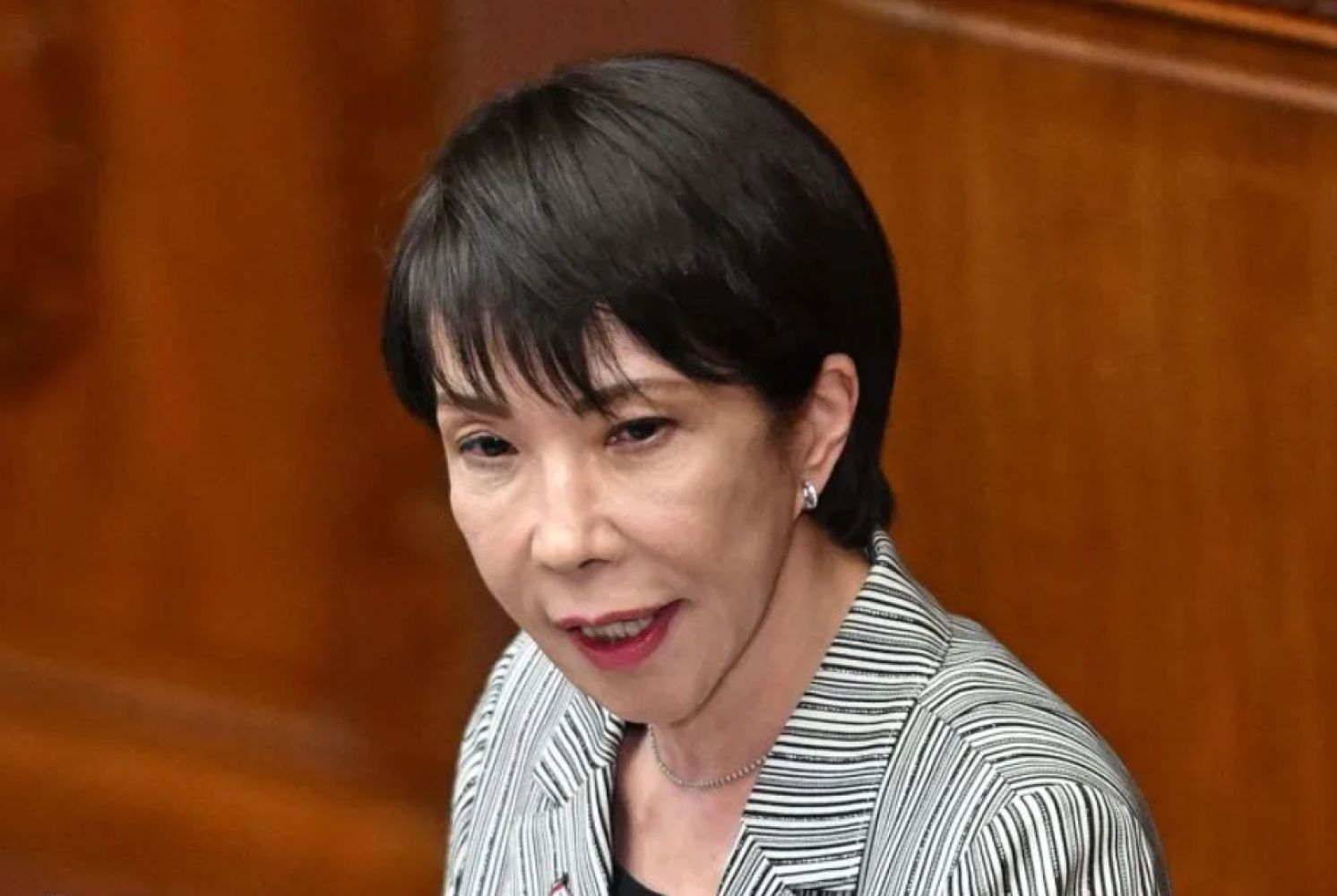
Taiwan Should Not Become Japan's Pawn in China Strategy
China Times Editorial, November 10, 2025
In response to a question from Constitutional Democratic Party lawmaker and former foreign minister Katsuya Okada regarding a “Taiwan contingency,” Prime Minister Sanae Takaichi of Japan stated that such a scenario could constitute a “threat to Japan’s survival,” and under Japan’s current security laws, the exercise of collective self-defense would be possible. She emphasized that a “Taiwan contingency” is a serious situation, and Japan must prepare for the worst-case scenario.
Under the security legislation established in 2015, if the Cabinet determines that a “threat to survival” exists, then Japan may exercise collective self-defense even against parties that have not directly attacked Japan. Prime Minister Takaichi’s hypothetical scenario involved the use of warships and military force, potentially satisfying the conditions for a “threat to survival,” though Japan would respond cautiously to such developments.
Prime Minister Takaichi’s statements in the Diet do not represent a political intervention in a “Taiwan contingency” nor contradict the position of past prime ministers since Shinzo Abe regarding Taiwan. She has cultivated a pro-Taiwan image within the Liberal Democratic Party (LDP) and endorses Mr. Abe’s “Taiwan contingency” stance—advocating for secure economic supply chains and promoting Japan-Taiwan cooperation. Japanese Ministry of Foreign Affairs officials stress that her administration’s baseline policy toward Taiwan is to avoid diplomatic interactions for higher-level officials to minimize Beijing’s criticism, maintaining relations as “non-governmental practical ties.”
At the recent China-Japan summit in Gyeongju, Prime Minister Takaichi stressed that stable cross-strait relations are crucial. She does not welcome turbulence in the Taiwan Strait, which concerns Japan’s southern security, yet she does not seek confrontation with China. Upholding the 1972 Japan-China Joint Communiqué, her administration maintains relations with Taiwan through non-governmental, pragmatic exchanges—the so-called “1972 framework.” Minister of Foreign Affairs Toshimitsu Motegi reaffirmed that Japan’s fundamental stance on Taiwan remains unchanged. Japan recognizes Taiwan as a core interest for China and a foundation for Japan-China relations; this cannot be overturned by a prime minister’s personal will or ideology without jeopardizing Japan’s security and economic interests, nor would it gain majority domestic support.
Prime Minister Takaichi, aligned with Mr. Abe’s policies, has not forgotten Mr. Abe’s 2014 rationale when revising security legislation to permit limited collective self-defense. Abe clarified that this does not allow Japan to deploy troops directly to intervene in the Taiwan Strait or serve as a security lever against mainland Chinese military threats. The exercise of collective self-defense is limited; Japan cannot enter war to defend a foreign country, and the principle of not deploying forces overseas remains intact.
In practice, Japan’s security legal reform and the “lifting of restrictions on collective self-defense” have not structurally changed the U.S.-Japan hierarchical alliance. Japan’s role in Taiwan Strait security depends on American policy; it cannot dictate or expect to independently advance Taiwan’s security interests. High hopes that the Takaichi Cabinet will achieve what Mr. Abe could not—legislating a Japan-specific “Taiwan Relations Act” to provide legal grounds for involvement and security cooperation with Taiwan—are unrealistic.
Reports in Japan’s Weekly Post claimed that Prime Minister Takaichi struggled to convey the importance of the Taiwan Strait and U.S. interests in a contingency scenario to President Donald Trump of the United States, described as a “silent victory” in summit diplomacy. Some pan-green figures interpreted this as a positive signal from Japan and a historic shift in its defense policy. Yet, if the reports are accurate, it may indicate that Mr. Trump was considering a deal with Chinese President Xi Jinping regarding Taiwan—an even greater warning for the administration of President Lai Ching-te.
As East Asia faces turbulence, Japanese politics is shifting right. Prime Minister Takaichi replaced liberal-leaning predecessor Shigeru Ishiba, forming a cabinet with the Japan Innovation Party, restoring Abe’s policy line. Presenting herself as a proponent of nationalism, Ms. Takaichi aligns with Mr. Trump, expands defense budgets, and seeks to revise the 2022 “three security documents,” aiming to broaden collective self-defense—introducing uncertainties to East Asian peace and security.
The Lai administration may perceive Ms. Takaichi as steadfastly pro-Taiwan, strengthening confidence in anti-China policy. Yet, under her leadership, Japan’s top officials suppress overt “pro-Taiwan” signals to avoid diplomatic friction with China. Minister of Defense Shinjiro Koizumi met with Chinese Minister of National Defense Dong Jun in Malaysia, emphasizing persistent, candid dialogue to prevent accidental clashes between the Self-Defense Forces and the People’s Liberation Army (PLA).
While emergencies around Taiwan affect Japan’s security, Taiwan must not become a diplomatic pawn against China. The Lai administration should avoid uncritically embracing Ms. Takaichi’s “Taiwan contingency” rhetoric or blindly supporting Japan’s more aggressive approach. At the same time, Japan maintains dialogue with Beijing; President Lai cannot follow Ms. Takaichi blindly without also seeking to open cross-strait communication channels and reduce regional tensions.
From: https://www.chinatimes.com/opinion/20251110004011-262101?chdtv